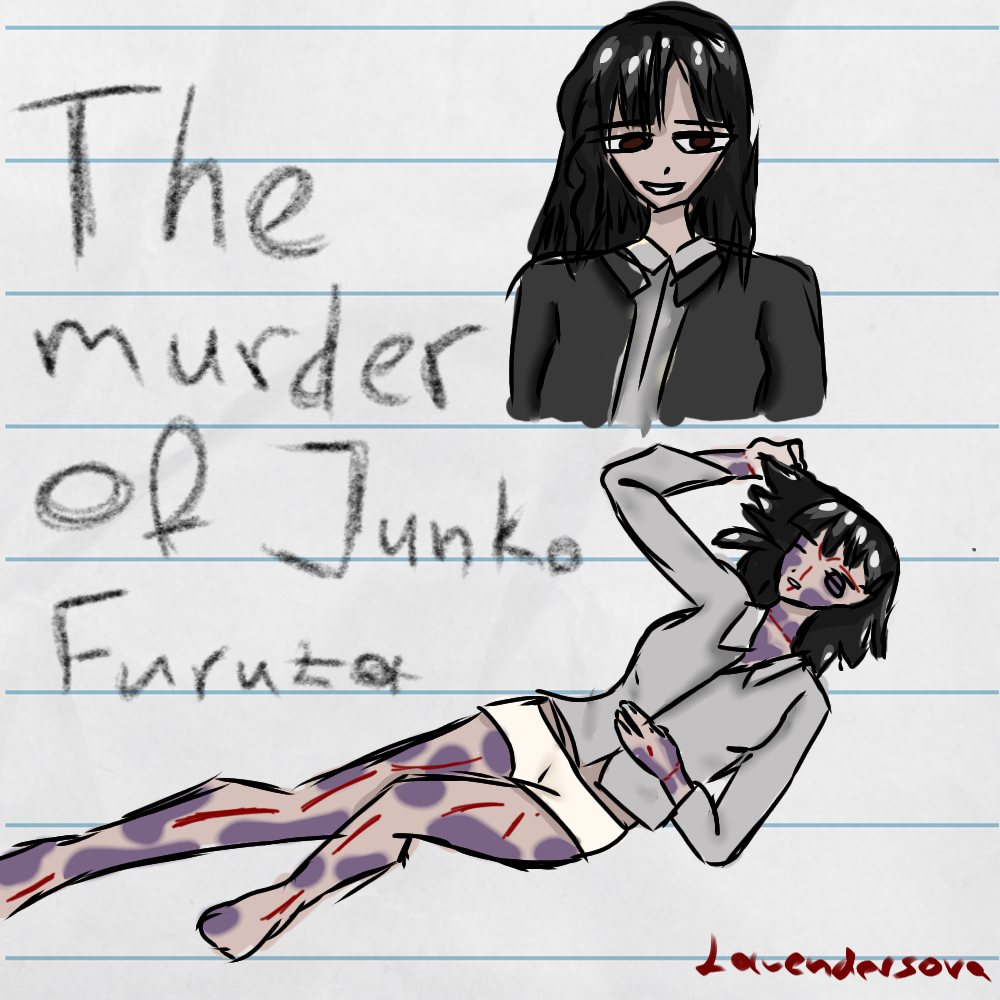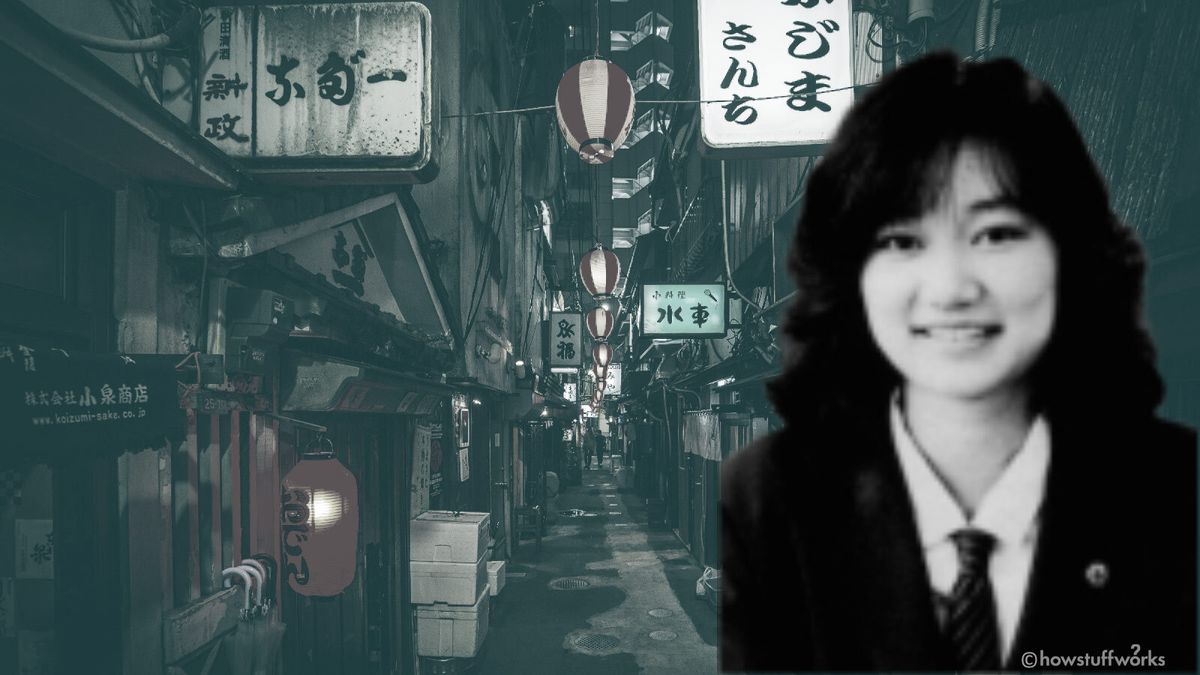Junko Furuta Kim: The Untold Story Behind Japan's Most Infamous Crime
This is the story of Junko Furuta Kim, a name that sends chills down the spine of many in Japan. Imagine a tale so dark, so twisted, it became the stuff of urban legends. Her story is one of tragedy, resilience, and the haunting aftermath of one of Japan's most infamous crimes. This isn't just a story; it's a deep dive into the events that changed lives forever.
Let's get real here, folks. Junko Furuta Kim's case isn't just another crime story. It's a reminder of how far humanity can fall when cruelty takes center stage. This article aims to unravel the layers of her story, shedding light on the events that unfolded, the people involved, and the long-lasting impact on Japanese society. So, buckle up, because this is going to be intense.
Now, why are we talking about Junko Furuta Kim? Because her story is more than just a headline. It's a cautionary tale that touches on themes of justice, morality, and the human condition. Stick around, and we'll break it all down for you in a way that’s both informative and engaging. Let’s dive in!
Read also:Nikole Mitchells Onlyfans Controversy The Leaked Truth You Need To Know
Biography of Junko Furuta Kim
Early Life and Background
Junko Furuta Kim was born in Japan, a place where tradition and modernity often collide. Growing up, she lived an ordinary life, indistinguishable from her peers. But life took a dark turn when, at the tender age of 17, she became the victim of one of Japan's most heinous crimes. Her story is a stark reminder of how quickly life can change in the blink of an eye.
Here’s a quick snapshot of her early years:
| Full Name | Junko Furuta Kim |
|---|---|
| Date of Birth | December 1, 1965 |
| Place of Birth | Kobe, Japan |
| Education | Attended a local high school |
| Family | Parents and younger brother |
| Tragedy Occurred | November 25, 1988 |
The Infamous Incident: What Happened?
Let’s rewind to November 25, 1988, a day that would forever alter the course of Junko Furuta Kim's life. Imagine being kidnapped by four high school students, held captive for 44 days, and subjected to unimaginable horrors. This wasn't just a crime; it was a nightmare that unfolded in real life. The details are harrowing, and the impact on society was profound.
Key Details of the Crime
Here’s a breakdown of the events:
- Four high school students orchestrated the kidnapping.
- Junko was held captive in a toolshed behind one of the perpetrator's homes.
- She endured physical and psychological torture for 44 days.
- The perpetrators eventually killed her by suffocation and dumped her body in a river.
This crime shook Japan to its core, raising questions about the justice system, youth violence, and societal values.
Read also:Fluffy Pony Abuse A Deep Dive Into The Dark Side Of Equine Welfare
The Legal Aftermath: Justice Served?
When it comes to the legal proceedings, the case of Junko Furuta Kim is both complicated and controversial. The four perpetrators were all minors at the time, which meant they were tried under Japan's juvenile justice system. Here's the kicker: the maximum sentence for juveniles at the time was 15 years, regardless of the severity of the crime. How’s that for a shocker?
Verdicts and Sentencing
Let’s break down the verdicts:
- Two of the perpetrators received 15-year sentences.
- One received a 12-year sentence.
- The fourth was sentenced to 10 years.
Many argue that the sentences were far too lenient, given the severity of the crime. This sparked a national debate about the juvenile justice system and whether it adequately addresses crimes of this magnitude.
Societal Impact: How Japan Reacted
The impact of Junko Furuta Kim's case on Japanese society cannot be overstated. It forced the nation to confront uncomfortable truths about its justice system, youth violence, and the need for reform. Public outrage was palpable, with calls for stricter laws and harsher punishments for juvenile offenders.
Reforms and Changes
Here are some of the changes that followed:
- Japan revised its juvenile justice laws, allowing for harsher sentences in extreme cases.
- There was a push for increased education and awareness about violence and its consequences.
- Victim support services were strengthened to provide better assistance to families affected by crime.
This case served as a wake-up call, prompting Japan to take a closer look at its approach to crime and justice.
The Psychological Toll: A Closer Look
While the legal and societal impacts are significant, the psychological toll on Junko's family and friends cannot be ignored. Losing a loved one in such a brutal manner leaves scars that never fully heal. The emotional weight of this tragedy is something no one should have to endure.
Support for Families
Here’s what’s been done to support families in similar situations:
- Establishment of support groups for victims' families.
- Psychological counseling services made more accessible.
- Community programs aimed at fostering empathy and understanding.
These efforts aim to provide a safety net for those left behind, helping them navigate the emotional minefield that follows such a loss.
Cultural Representation: Junko Furuta Kim in Media
Over the years, Junko Furuta Kim's story has been portrayed in various forms of media, from books to documentaries. These works often grapple with the complexities of the case, attempting to make sense of the senseless. But how accurate are these portrayals, and what impact do they have on public perception?
Notable Works
Here are some notable representations:
- “Sakamichi no Apollon” (2011) – A manga series inspired by the case.
- “Junko: The True Story” – A documentary exploring the events and aftermath.
- “Confessions” – A novel and film adaptation that draws inspiration from the case.
While these works bring attention to the case, they also raise ethical questions about the commercialization of tragedy.
Lessons Learned: What Can We Take Away?
Junko Furuta Kim's story is a powerful reminder of the importance of empathy, justice, and societal responsibility. It challenges us to rethink our approaches to crime prevention, youth education, and the justice system as a whole. The lessons learned from this tragedy are invaluable, but they come at a devastating cost.
Key Takeaways
Here’s what we can learn:
- Crime prevention starts with education and awareness.
- The justice system must balance leniency with accountability.
- Society has a responsibility to support victims and their families.
These lessons are crucial for creating a safer, more compassionate world.
Call to Action: What Can You Do?
So, what can you do to make a difference? Start by educating yourself and others about the issues surrounding crime and justice. Support organizations that work to prevent violence and assist victims. Share this article with friends and family to keep the conversation going. Together, we can create a world where tragedies like Junko Furuta Kim's case become a thing of the past.
Conclusion: Remembering Junko Furuta Kim
In conclusion, Junko Furuta Kim's story is one that demands our attention and reflection. It’s a tale of tragedy, resilience, and the unyielding quest for justice. By understanding the events that unfolded and the impact they had, we can work towards a future where such horrors are no longer possible. Let’s honor Junko’s memory by taking action and making a difference in our communities.
So, what’s next? Share your thoughts in the comments below. Spread the word about this article and encourage others to learn more about the issues discussed. Together, we can create a brighter, safer tomorrow. Thanks for reading, and remember: every voice matters.
Table of Contents
- Biography of Junko Furuta Kim
- The Infamous Incident: What Happened?
- The Legal Aftermath: Justice Served?
- Societal Impact: How Japan Reacted
- The Psychological Toll: A Closer Look
- Cultural Representation: Junko Furuta Kim in Media
- Lessons Learned: What Can We Take Away?
- Call to Action: What Can You Do?
- Conclusion: Remembering Junko Furuta Kim


